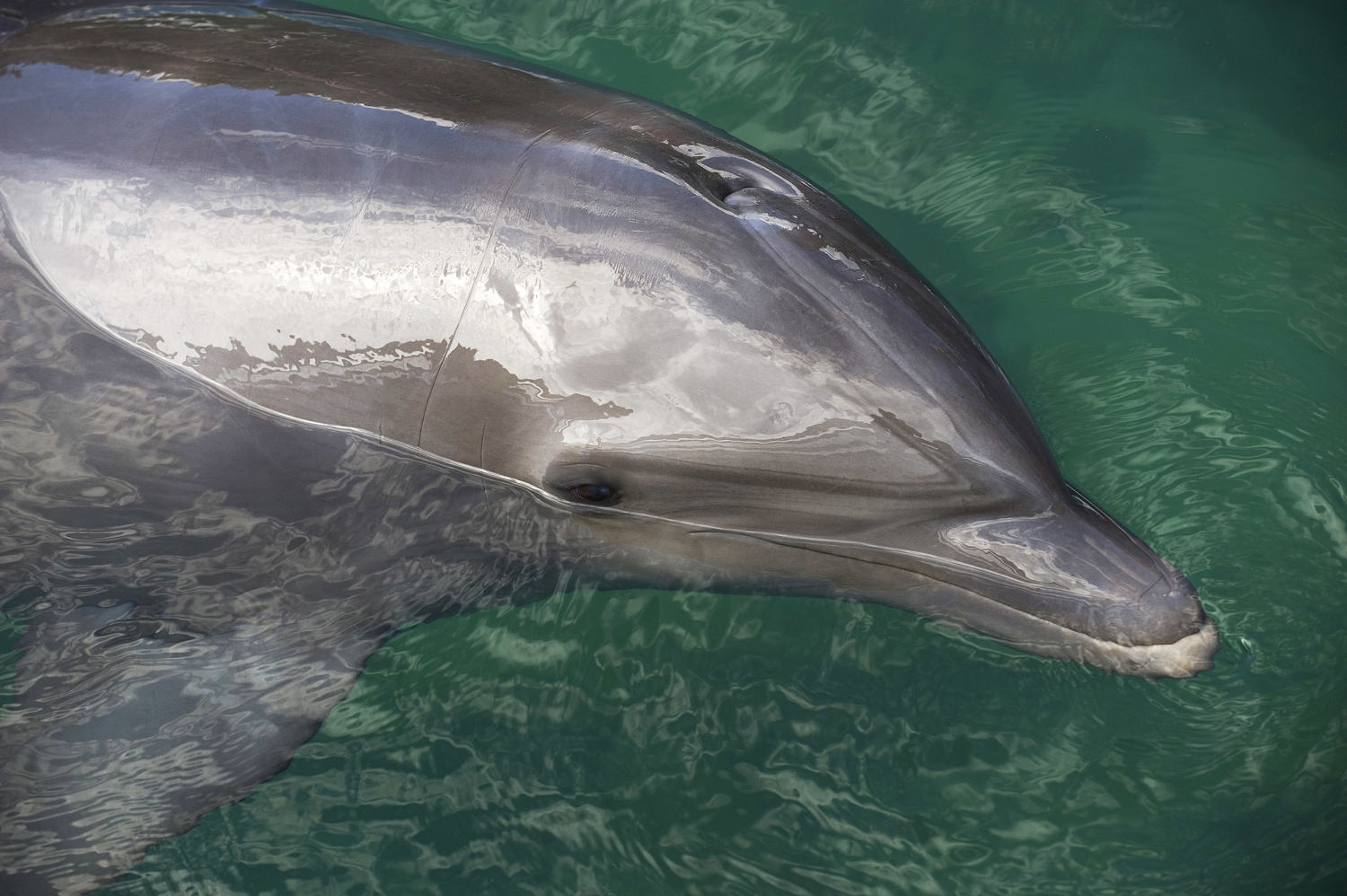Lonely dolphin may be behind series of attacks on swimmers

TOKYO — A single bottlenose dolphin is believed to be behind a series of attacks on swimmers at a Japanese seaside town — possibly out of loneliness.
Japanese broadcaster NHK reported on Aug. 20 that a man in his 50s had been bitten on both hands that morning by a dolphin that approached him as he tried to shoo it away at a beach in Tsuruga, a city in Fukui Prefecture. He was the 18th dolphin victim since July 21 and the second in as many days.
In the past three years, 48 people in the area have suffered dolphins bites, NHK reported, leaving some with broken bones.
Although it has not been confirmed, the attacks in recent years are widely believed to have been carried out by the same male bottlenose dolphin. The attacks have consistently involved a single dolphin that appears to be on its own, which is unusual considering bottlenose dolphins are a highly social species that sticks closely together in pods.
Injuries on the dorsal fin of the dolphin involved in the Aug. 20 attack match those of a dolphin spotted off the coast last year, said Tadamichi Morisaka, a researcher at the Cetacean Research Center at Japan’s Mie University who has seen photographs. Dorsal fins are unique to each dolphin, similar to a fingerprint.
“It’s reasonable to assume that they’re the same individual,” Morisaka told NHK.
In an email to NBC News, Morisaka added that it’s unusual for bottlenose dolphins of this kind to approach people at all, let alone bite them. In this case, the dolphin appears to have gotten used to interacting with people after doing it for several years.
He said the bites appear to be playful, suggesting the dolphin “mainly wants to interact with humans,” rather than attack or harm them.
But because dolphins have lots of sharp teeth, even a gentle bite can cause injury to humans.
Swimmers in the area are now being warned to get out of the water if they see a dolphin. When a dolphin was spotted near the swimming area at a beach in the town of Mihama on Aug. 21, it was coaxed out to sea by a beach staff member on water skis.
“Last year, there were many incidents in which swimmers were bitten by dolphins. Some even suffered broken bones requiring more than 10 stitches,” one coast guard notice reads, adding that in many cases the swimmers were bitten as they approached the dolphins to touch them.
Signs posted by the Wakasa-Mihama Tourist Association warn that while dolphins are “usually calm creatures,” if provoked they can draw blood with their teeth or drag people out to sea.
The animal involved in the attacks appears to be a “sociable solitary dolphin” that has become isolated from its normal dolphin society, though it is unclear why, said Elizabeth Hawkins, chief executive and founding director of Dolphin Research Australia.
Cast off on their own, the dolphins “try and fulfill their natural social urges with other species, and it’s often humans that they’re seeking out,” she said.
Male bottlenose dolphins tend to form tight bonds with each other, which they reinforce by chasing, biting and touching each other, including in sexual ways.
So when they are socially isolated, Hawkins said, they “can be quite pushy, they can be quite aggressive, they can bite.”
“That’s all part of their normal behavior in the dolphin society,” she said. “But towards humans, it’s obviously something that can be quite dangerous and can cause quite serious injuries.”
“So in the context of this animal, it’s certainly the case that we want to make sure that it is given space.”
Arata Yamamoto reported from Tokyo, and Jennifer Jett reported from Hong Kong.




